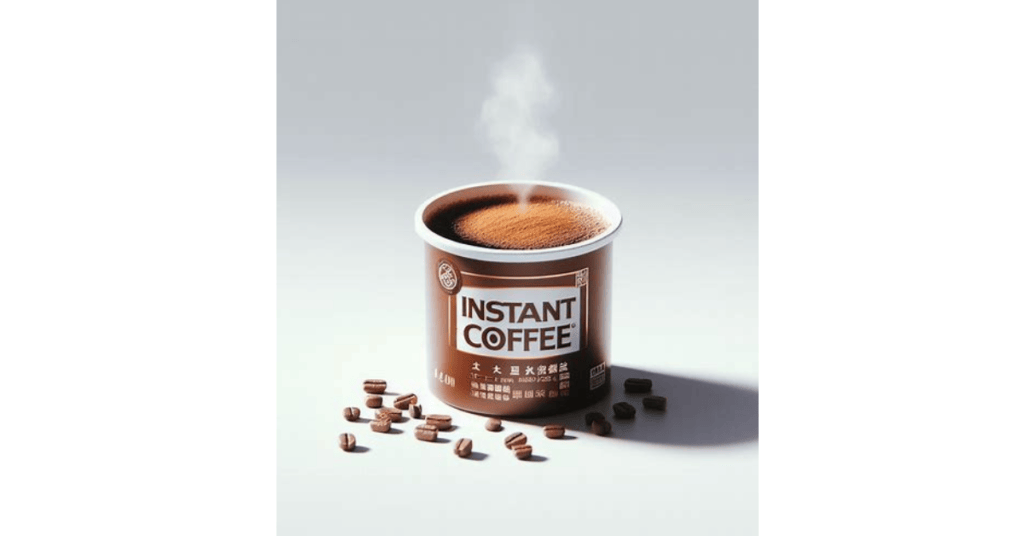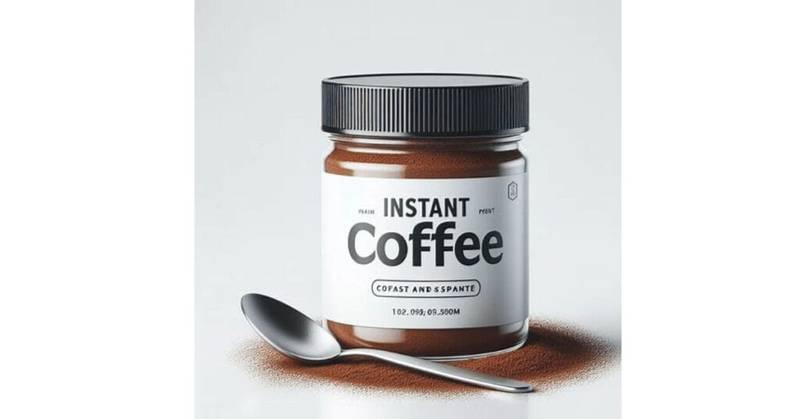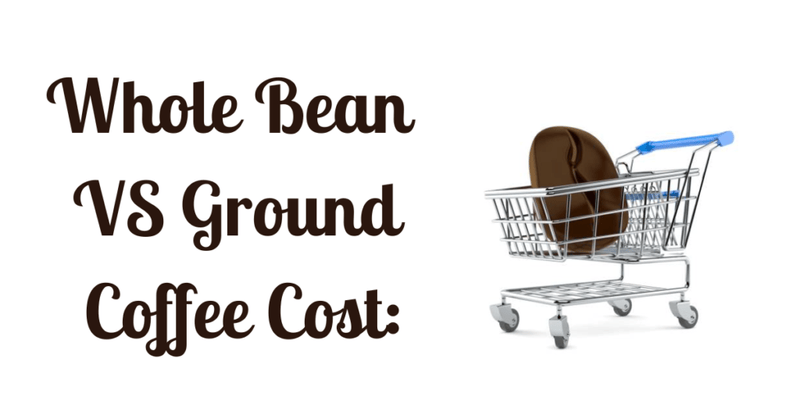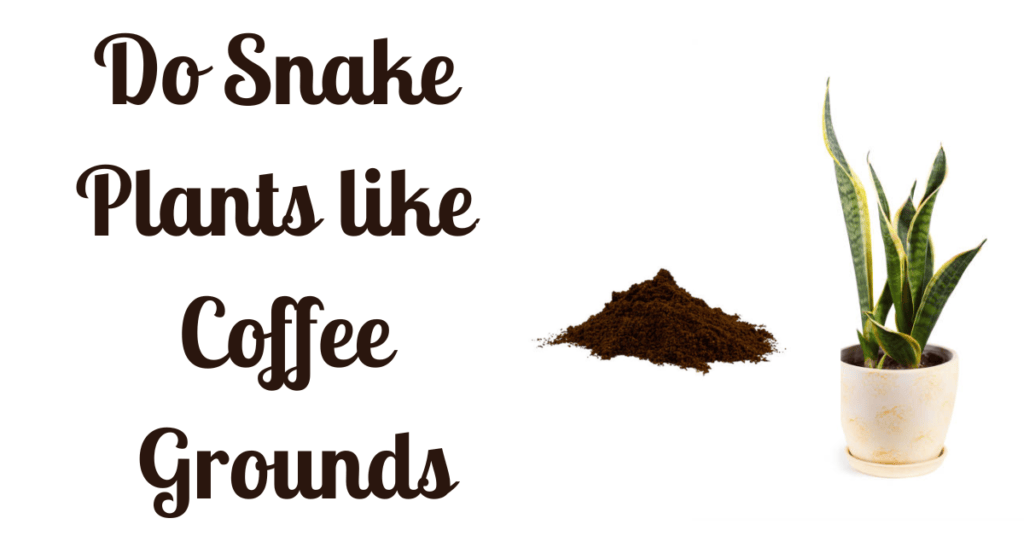Can I use Ground Coffee as Instant Coffee? This common query arises from the desire for a quick cup of coffee without the fuss of brewing.
The answer, however, lies in the fundamental differences between ground coffee and instant coffee.
Ground coffee consists of coarse or finely crushed coffee beans, requiring a brewing process to extract the flavors.
In contrast, instant coffee undergoes a unique dehydration process, turning brewed coffee into a soluble form.
Attempting to use ground coffee as an instant involves brewing it first.
While the result may resemble instant coffee, the process is distinct.
The convenience of instant coffee lies in its solubility, allowing for immediate preparation.
So, Can you use Ground Coffee as Instant? The answer involves understanding the distinct characteristics of each and whether you’re seeking a quick fix or savoring the ritual of brewing.
This method elevates caffeine consumption. If you are prone to side effects associated with caffeine, this brewing technique may not suit you.
Table of Contents
Can You Use Ground Coffee as Instant || Using Ground Coffee Beans as Instant Coffee

A straightforward method involves straining the coffee when substituting ground coffee for an instant.
Begin by adding the desired amount of ground coffee to a cup.
Boil water separately and pour it over the grounds, allowing the coffee to steep.
This process mimics the extraction phase of brewing, albeit in a more rudimentary form.
Instant coffee is a dehydrated coffee extract. This implies that it readily dissolves in hot or cold water, resulting in a genuine cup of coffee.
According to Maxine Yeung, this method often produces a distinct coffee texture that might tantalize your taste buds.
Indeed, as Yeung explains, coffee beans contain two natural oils named cafestol and kahweol.
These oily compounds, known as diterpenes, are typically filtered out using a traditional filter. However, when you prepare coffee utilizing this technique, it persists in your cup.
According to a September 2019 review in the International Journal of Molecular Sciences, each cup of unfiltered brew contains between 3 and 6 milligrams of these diterpenes.
1. Strain the Coffee
To convert ground coffee into a makeshift instant version, use a fine mesh strainer or cheesecloth to separate the liquid from the ground.
This step helps eliminate the larger coffee particles, providing a smoother texture reminiscent of instant coffee.
Press down on the feet to extract any remaining liquid, ensuring a more concentrated flavor in the strained coffee.
2. Let the Grounds Settle
After straining, allow the coffee grounds to settle at the bottom of the cup.
Patience is vital at this stage, as giving the settings time to relax enhances the clarity and taste of the strained liquid.
This waiting period contributes to a cleaner, more refined cup, despite the improvisation in transforming ground coffee into a form resembling instant.
3. Pour Your Coffee Into Another Cup
Transfer the strained coffee into another cup to achieve an even cleaner cup.
This extra step further separates any remaining sediment, delivering a more satisfying and visually appealing result.
By pouring the liquid into a fresh cup, you create a distinction between the brewed grounds and the clarified coffee, enhancing the overall drinking experience.
4. Regrind Larger Pieces Before Brewing
In cases where the ground coffee used is coarser, it’s advisable to regrind larger pieces before brewing.
This additional step ensures a more consistent texture akin to the fine powder characteristic of instant coffee.
Use a coffee grinder to process the coarser grounds, creating a smoother, more soluble mixture suitable for a makeshift instant coffee experience.
How Does Instant Coffee Dissolve?
Instant coffee dissolves through a process of dehydration and solubility.
During the manufacturing of instant coffee, brewed coffee is subjected to specialized dehydration methods such as freeze-drying or spray-drying.
These techniques remove the brewed coffee’s water content, leaving dehydrated coffee particles behind.
When you mix instant coffee with hot or cold water, the dehydrated particles readily dissolve.
The soluble nature of instant coffee results from the dehydration process, which transforms the brewed coffee into a form that easily integrates with water, allowing for a quick and convenient preparation of a cup of coffee.
This solubility is an essential characteristic distinguishing instant coffee from traditional ground coffee, making it a popular choice for those seeking a fast and hassle-free coffee experience.
Pros of Using Ground Coffee Like Instant

Ground coffee allows for greater control over the flavor profile of your coffee.
You can adjust the grind size, brewing time, and coffee-to-water ratio to tailor the taste to your preference.
This customization is often limited in instant coffee, where the flavor is predetermined during manufacturing.
Freshness and Aroma:
Ground coffee provides the opportunity to enjoy coffee beans’ freshness and aromatic qualities.
Instant coffee is processed and dehydrated, which may result in a loss of some volatile compounds responsible for the distinctive aroma of freshly ground beans.
Cost-Efficiency:
Using ground coffee in a manner akin to instant can be a cost-effective alternative.
Ground coffee is generally less expensive than instant coffee, and you can choose economical coffee beans without compromising flavor.
Reduced Additives:
Making coffee from ground beans allows you to control the additives in your beverage.
Instant coffee often includes additional ingredients for stability and flavor, which may not align with everyone’s preferences or dietary choices.
Ground coffee lets you enjoy a more straightforward and natural cup of coffee.
Brewing Ritual:
For coffee enthusiasts, brewing ground coffee can be a ritual that adds to the coffee-drinking experience.
The tactile engagement with the coffee-making process, from grinding to brewing, can be a source of pleasure and satisfaction.
While there are advantages to using ground coffee like instant, it’s essential to acknowledge that instant coffee is specifically designed for quick and convenient preparation, making it suitable for those with busy lifestyles or limited access to brewing equipment.
The choice between ground and instant coffee ultimately depends on individual preferences, time constraints, and the desired level of control over the brewing process.
Drawbacks of Using Ground Coffee Like Instant

Unlike instant coffee, which dissolves readily in hot water, ground coffee involves a more time-consuming preparation process.
It requires more time, from measuring and grinding to brewing and straining, making it less convenient for those seeking a quick cup.
Sediment & Inconsistent Results:
Straining ground coffee may only partially eliminate all the sediment, resulting in a beverage with a coarser texture than instant coffee.
Residual grounds can settle at the bottom of the cup, affecting the overall drinking experience.
Achieving a consistent flavor and texture with ground coffee used as an instant can be challenging.
Factors such as the grind size, brewing time, and water temperature may vary, leading to inconsistencies in taste from one preparation to another.
Limited Portability & Waste Generation:
Ground coffee requires additional tools and equipment, such as a grinder and strainer, which may limit its portability compared to instant coffee.
Instant coffee is designed for on-the-go convenience, making it more suitable for travel or when brewing equipment is not readily available.
Staining ground coffee generates waste in the form of used coffee grounds.
While coffee grounds can be repurposed for various applications, such as composting, the additional disposal step may need to be more environmentally friendly than the simplicity of discarding instant coffee packaging.
Potential Mess & Limited Solubility:
The process of handling ground coffee can be messier compared to the simplicity of using instant coffee.
Grinding and straining may result in spills or grounds scattered around the preparation area, requiring additional cleanup.
Instant coffee undergoes specific processing to enhance its solubility, ensuring quick and complete dissolvability in hot water.
Ground coffee may dissolve less efficiently, leading to a less homogeneous and potentially gritty cup of coffee.
While some coffee enthusiasts appreciate the ritual and control of ground coffee, others may find these drawbacks outweigh the benefits, especially when convenience and speed are prioritized.
Ultimately, the choice between ground and instant coffee depends on individual preferences, lifestyle, and the importance of the coffee-drinking experience.
How To Choose Coffee Beans?
Exploring coffee flavors becomes crucial in discovering if you can use ground coffee as an instant.
For enthusiasts seeking a delightful experience, the choice of coffee beans is pivotal.
If you’re a fan of the rich and robust, the “peak Colombian coffee beans” might be your perfect match.
Alternatively, those yearning for a velvety cappuccino experience can explore the wonders of the “A-grade Italian coffee beans for cappuccino.”
Whether you prefer a balanced cup or are looking for the “superlative medium roast coffee beans,” the journey through coffee options is vast.
Even iconic brands like Starbucks contribute to the coffee tapestry, leading you to the “distinctive Starbucks coffee beans.”
For those captivated by the South American coffee charm, delving into the world of the “lavish Brazilian coffee beans” is a captivating exploration.
Lastly, if your brewing ritual involves the art of pour-over, discovering the “best brewed by hand beans” can elevate your coffee game, unveiling the potential of ground coffee in every cup.
Is Instant Coffee the Same as Ground Coffee?

No, instant coffee is not the same as ground coffee.
They are two distinct forms of coffee with different preparation methods and characteristics.
Although both originate from coffee beans, using ground coffee as an instant requires another preparation method, emphasizing the distinction in taste and texture between the two.
Composition and Production:
Instant coffee and ground coffee vary significantly in their composition and production methods.
Instant coffee is created through a dehydration process involving brewing coffee and removing the water, leaving behind crystals or powder.
In contrast, ground coffee results from grinding roasted coffee beans, offering a coarser or finer texture based on the desired brewing method.
The distinct manufacturing processes contribute to taste, aroma, and convenience differences.
Preparation Techniques:
The preparation techniques for instant and ground coffee highlight their unique characteristics.
Instant coffee is celebrated for its quick and simple preparation – just add hot water, and it dissolves effortlessly.
This makes it exceptionally convenient, especially in situations where time is limited.
On the other hand, ground coffee demands a more intricate brewing process involving the measurement of coffee grounds, hot water infusion, and, in some cases, additional steps like straining or filtering.
The preparation rituals for each type cater to different preferences and lifestyles.
Flavor Profiles and Aromas:
Delving into the taste and aroma of these two coffee varieties reveals further distinctions.
Instant coffee can often be milder and less complex in flavor due to dehydration, which might alter the original taste of the brewed coffee.
In contrast, ground coffee provides a broader and richer flavor profile.
The brewing process allows for extracting various compounds from the coffee beans, producing a more robust and aromatic cup.
The preference for one over the other often hinges on individual taste preferences.
Convenience and Use Cases:
The convenience factor plays a pivotal role in determining when and where each type of coffee is most suitable.
Instant coffee is convenient – it’s quick, portable, and requires minimal equipment.
It’s a popular choice for those on the go or when brewing equipment is unavailable.
With its more involved preparation, ground coffee is favored by those who appreciate making coffee and have the time to engage in the brewing ritual.
Each caters to specific use cases, providing options for the time-pressed and the coffee aficionado.
Instant Coffee VS Ground Coffee

The decision between instant coffee and coffee grounds hinges on various factors, each catering to different preferences and circumstances.
These aspects will help determine which option better aligns with individual needs and desired coffee-drinking experiences.
1. Convenience and Time Efficiency:
Instant coffee stands out for its unmatched convenience, offering a quick, fuss-free solution with instant dissolvability in hot water.
This makes it an ideal choice for those on the go or when time is critical.
Conversely, coffee grounds demand a more time-consuming brewing process, appealing to individuals who have the luxury of time and appreciate the ritual of crafting their cups.
2. Flavor Complexity and Aroma:
Delving into the realm of flavor and aroma, instant coffee may be perceived as having a milder taste due to the dehydration process.
In contrast, coffee brewed from grounds provides a more complex and nuanced flavor profile, accompanied by a more decadent aroma.
The choice between the two rests on the preference for a quick, straightforward taste or a more intricate and aromatic experience.
3. Customization Options:
When it comes to customization, the limitations of instant coffee become apparent.
The flavor is predetermined during manufacturing, offering minimal room for personal adjustments.
On the other hand, using coffee grounds allows for a higher degree of customization.
Experimenting with grind sizes, brewing times, and coffee-to-water ratios provides a tailored experience, letting individuals fine-tune their cups to perfection.
4. Cost Considerations:
Cost can be a significant factor in the decision-making process.
Instant coffee, being generally more cost-effective, presents an economical option that can result in substantial savings over time.
However, high-quality coffee grounds offer a superior flavor experience and potential cost savings for those willing to invest a bit more, especially when purchased in bulk.
5. The Pleasure of the Brewing Ritual:
Finally, the choice between instant coffee and coffee grounds often comes down to the brewing ritual.
Instant coffee caters to those who prioritize speed and simplicity, making it an ideal choice for individuals with busy lifestyles.
In contrast, coffee grounds appeal to enthusiasts who derive joy from the hands-on process of grinding, brewing, and savoring the ritual of creating a perfect cup.
Ultimately, the optimal choice depends on carefully considering these factors, with individuals weighing their priorities and preferences to determine whether the convenience of instant coffee or the richness of coffee grounds better suits their unique coffee-drinking desires.
In exploring the transformation of ground coffee beans into instant coffee, one may wonder about the versatility of coffee grounds. A common query arises – can you use regular coffee grounds for cold brew?
As we unravel the process of converting ground coffee into instant coffee, these inquiries seamlessly intertwine, forming a narrative that not only explores the instant coffee conversion but also touches upon the broader aspects of coffee grounds’ utility and application, creating a holistic perspective for coffee enthusiasts and gardeners alike.
Many coffee enthusiasts ponder the practicality of using regular coffee grounds for cold brew.
The coarse texture of these grounds lends itself well to the slow extraction process, resulting in a smoother and less acidic mixture.
FAQS || Can You Use Ground Coffee as Instant
Can I Just add Water to Ground Coffee?
To make coffee without a coffeemaker, saturate ground coffee with boiling water, press settled grounds to the bottom using a tablespoon, and then pour the brew into a mug.
Can you Drink Ground Coffee without Filtering?
Enjoy ground coffee sans a filter; learn how from a coffee industry expert in this free video at /cooking guide.
Is Coffee Stronger if Ground Finer?
A finer grind intensifies coffee strength by releasing more caffeine into the water, yielding a more robust cup. In comparison, a coarser grind produces a consistently weaker brew.
Why is my Ground Coffee Weak?
Weak coffee often results from insufficient coffee grounds, causing a short brewing time (under-extraction). At the same time, excessive contact leads to over-extraction, affecting the coffee’s strength.
Conclusion
In conclusion, “Can you use Ground Coffee as Instant” highlights the nuances between these coffee forms.
While ground coffee requires brewing, instant coffee offers immediate solubility.
Understanding these distinctions ensures a choice that aligns with your preferences.
So, next time you ponder “Can Ground Coffee be used as Instant Coffee?” consider the brewing ritual or the instant convenience, each offering a unique coffee experience.







